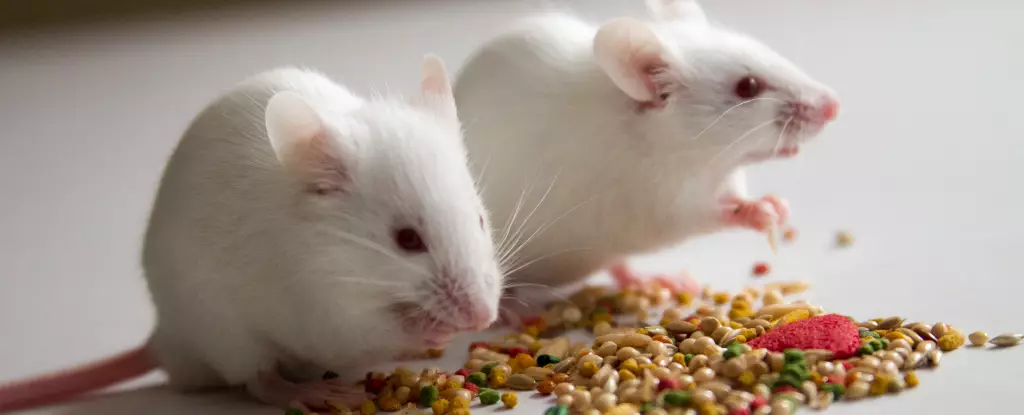The quest for longevity has driven researchers to explore various dietary strategies, with caloric restriction frequently emerging as a prominent contender. A recent study involving nearly 1,000 mice indicates that a significant reduction in calorie intake may assist in extending lifespan. However, this desirable outcome is marred by complex metabolic shifts and varying impacts on individual health that warrant a closer examination. Scientific investigations present a multifaceted perspective on whether the age-old adage of “eating less to live longer” is effective or merely an oversimplification of a complicated biological narrative.
While numerous studies across different species, from fruit flies to primates, suggest that reduced caloric intake can indeed enhance lifespan, the translation of these findings to human biology remains uncertain. Ethical considerations, practical challenges, and inherent differences in physiology imply that while some principles may hold true, outright dietary manipulation to achieve longevity might not be universally applicable. Consequently, this raises significant questions about individual responses to caloric restriction, especially considering varying genetic predispositions and lifestyle factors.
The recent research, which assessed the effects of caloric reduction on 960 genetically diverse female mice, yielded intriguing results that corroborate earlier studies suggesting the positive relationship between mild caloric deficits and lifespan extension. Mice subjected to a higher caloric restriction showed a marked weight loss of nearly 25% by 18 months, contrasting sharply with their peers who experienced weight gain on standard diets. Furthermore, those on strict diets enjoyed an impressive longevity boost of up to nine months.
Yet, these averages mask essential nuances regarding survival outcomes within the caloric-restricted population. The disparity in longevity among calorie-restricted mice points to the idea that a simple reduction in calorie intake may not be uniformly beneficial. Instead, genetic factors played a pivotal role, indicating that some mice could withstand the stresses of reduced food intake better than others. Specifically, mice that maintained weight during stressful handling exhibited longer lifespans, suggesting that resilience, rather than mere calorie counting, is vital for longevity.
Delving deeper into the metabolic processes at play, researchers discovered that increased survival rates were linked to factors beyond caloric intake. Mice with elevated levels of infection-fighting white blood cells and consistent red blood cell size experienced better overall health. This finding emphasizes the intricate relationship between an individual’s metabolic health and genetic context. The study suggests that rather than developing a linear model equating calorie reduction with lifespan extension, we must account for the multi-dimensional nature of health, influenced by genetic predisposition and physiological robustness.
Given the evidence that maintaining weight and metabolic stability can be advantageous, it becomes apparent that adopting a one-size-fits-all approach to diet may lead to misleading conclusions. Not all individuals may reap the purported benefits of caloric restriction, and, conversely, some may experience detrimental health effects related to restricted eating.
With the disparities illustrated in this mouse study, it is crucial for humans considering similar dietary strategies to tread carefully. Metabolic responses can vary significantly from one individual to another, thus emphasizing the need for personalized approaches to diet. While intermittent fasting and other caloric limitations may yield benefits for some individuals, they can impose stress and potential negative health consequences for others.
While the prospect of increased longevity remains alluring, a broader perspective on health must also be maintained. It is not solely the number of years one accumulates that matters but the quality of life experienced throughout those years. As we continue advancing our understanding of metabolism and genetics, dietary recommendations should evolve towards more holistic, individualized strategies that prioritize well-being rather than strict adherence to caloric reductions.
The study of caloric restriction and its impact on longevity showcases the intricate interplay between diet, metabolism, genetics, and overall health. While we have much to learn from animal studies, it is vital to approach dietary modifications with an understanding of their complexities. Future dietary guidelines should consider individual variability in responding to caloric changes, while promoting health maintenance as a critical component of enhancing both lifespan and quality of life. Ultimately, striking a balance between moderation, personal health, and genetic predisposition may be the key to navigating the road to a longer, healthier life.

